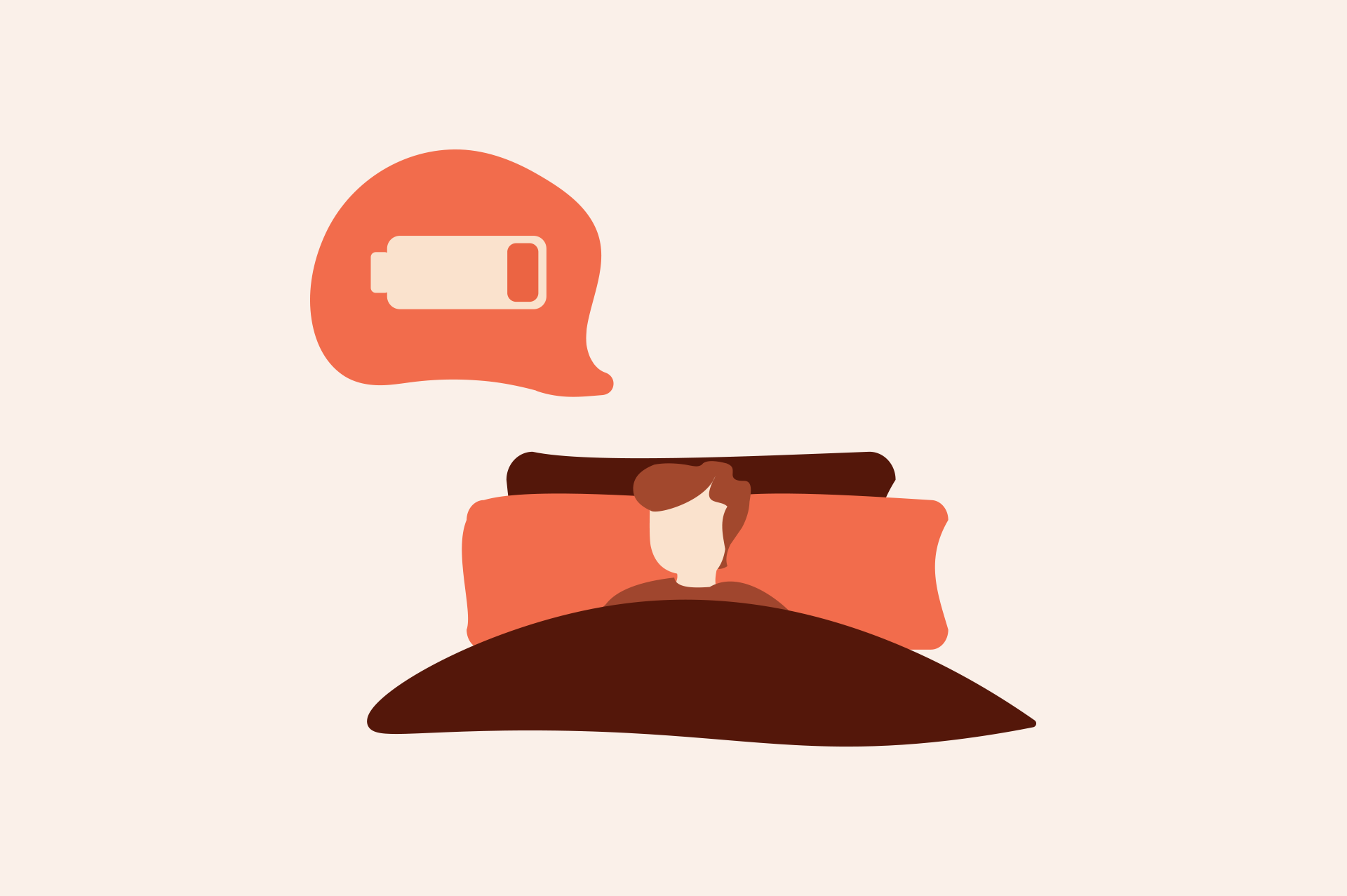Sleep problems
Sleep can sometimes be neglected due to all the study-related demands, social activities, hobbies, and other things that are going on in life. If you come from another country, your sleep may also be affected by the Swedish winter darkness and bright summer nights.

However, sleeping well and getting enough recovery is important for us to feel good and have the energy to cope with all the demands in everyday life. If you have problems with sleep, there are several strategies that you can try to improve it.
Different people have different needs for sleep, and it can also vary in terms of circadian rhythm. It is normal to sleep worse sometimes, for example, during stressful periods. The body compensates for the lost sleep by sleeping extra deep the following days. If you have had sleep problems for a long time and it affects you negatively, it is a good idea to do something about it.
Review your habits and routines
When you want to improve your sleep, a good start is to review your habits and routines to see if there is anything you can change to make it better. Remember that it can take time before the effect of a change is noticeable, so do not give up if you do not sleep better right away.
Try this to improve your sleep:
- Create good habits
Strengthen the circadian rhythm by getting daylight in the morning, getting some movement a few times during the day, and eating regularly. Try to go to bed and wake up at about the same time every day, even on weekends and if you have slept poorly. Avoid screens at least an hour before bedtime. Refrain from caffeine and heavy meals in the evening. Also, refrain from looking at the clock during the night. - Think about the sleep environment
Let your sleeping place be comfortable and free from distractions and noise. Darken the room and keep it comfortably cool during the night. - Avoid naps
If you get tired during the day, it can be tempting to take a nap. However, this can disturb your night sleep because it makes you less tired in the evening. Keep naps short if you really need them. - Reduce the amount of time awake in bed
Try not to spend more time in bed than the time you sleep, in the hope of being able to sleep for a longer time. Instead, go to bed later if you know that you usually twist and turn for a long time, and get up the time you must get up (even if you have slept poorly). Also get out of bed if you do not manage to fall asleep or cannot fall asleep again during the night or if you start to feel anxious. You can try reading a book or listen to calm music until you feel sleepy again. Try to avoid screen use. - Manage stress and worry
Life as a student can be stressful, which can affect your sleep negatively. Make sure to take time to worry about things that trouble you in good time before you go to sleep, for example, by writing a diary or making a to-do list for the next day. Take time for relaxation and practice stress management methods such as relaxation or diaphragmatic breathing (deep breathing) to learn to relax before bedtime.
If you experience that you are affected by the autumn and winter darkness, you can read more about what winter blues means and what you can do about it.
When to get professional help
If your sleep problems do not subside despite changes to sleep better, and it affects your ability to function in everyday life, it is wise to seek help.
You can turn to the Student Health Service for advice and support, or to get guidance on where you can seek help. You can also contact your local health centre or seek help via 1177.se